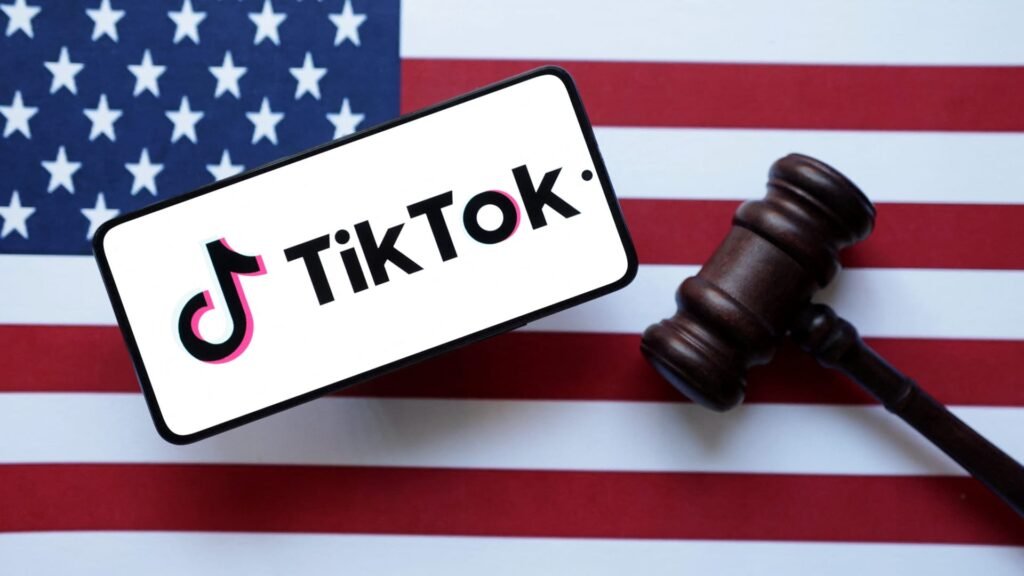The Supreme Court on Wednesday agreed to hear arguments that a law that would effectively ban TikTok if its parent company does not sell the popular social media app violates the U.S. Constitution’s free speech protections.
The Supreme Court scheduled oral arguments in the case for Jan. 10. That is nine days before the law targeting the app used by an estimated 170 million Americans is set to take effect.
The law would require TikTok’s Chinese parent company ByteDance to sell the app or force Google, Apple, and other platforms to stop supporting the app in the United States.
Congress passed the law, the Foreign Adversary Controlled Applications Act, due to concerns that TikTok’s Chinese ownership presented a national security risk.
The U.S. Court of Appeals for the District of Columbia Circuit upheld the law on Dec. 6, ruling that the DOJ had “offered persuasive evidence demonstrating that” the divestment law “is narrowly tailored to protect national security.”
The Supreme Court on Wednesday said it would hear challenges to the law filed jointly by TikTok and ByteDance, as well as by a group of TikTok users.
Those users include a rancher who produces short-form videos about agricultural issues, a woman who creates videos about parenting and mental health, and another woman who advocates for sexual assault survivors.
TikTok did not immediately respond to a request for comment Wednesday from CNBC.
The company says that if the app is banned, small U.S. businesses that use TikTok for marketing would lose more than $1 billion in revenue in the month following the ban, and people who create videos with the app would lose nearly $300 million in earnings.
The Supreme Court’s announcement Wednesday that it will take TikTok’s appeal came two days after the company filed a petition requesting an injunction against the law taking effect next month.
In that request, TikTok had said, “Congress’s unprecedented attempt to single out applicants and bar them from operating one of the most significant speech platforms in this nation presents grave constitutional problems that this court likely will not allow to stand.”
The Supreme Court order granting a hearing on the appeal ordered lawyers for TikTok and BytenDance, for the app users and the Department of Justice to brief and argue the question of whether the law as applied to TikTok “violates the First Amendment” of the Constitution.
But the court did not issue an injunction blocking the law from taking effect, saying that it was deferring considering that request “pending oral argument” on Jan. 10.
The court could rule on the injunction before the law takes effect on Jan. 19, a day before President-elect Donald Trump is due to take office.
Trump met with TikTok CEO Shou Zi Chew at Trump’s Mar-a-Lago club in Palm Beach, Florida on Monday, the same day that the company asked the Supreme Court to take its case.
Trump earlier that day told reporters, “We’ll take a look at TikTok,” when asked about the potential ban.
“You know, I have a warm spot in my heart for TikTok,” Trump said, suggesting that the app had boosted support for him from young voters during the election in November.
Jeff Yass, one of Trump’s major backers, is the co-founder and managing director of Susquehanna International Group, a significant investor in ByteDance.
A lawyer for Sen. Mitch McConnell of Kentucky, the Republican caucus leader, in a filing Wednesday at the Supreme Court opposed TikTok’s application for an emergency injunction against the law.
“TikTok clearly hopes that the” incoming administration” of Trump “will be more sympathetic to its plight than the incumbent administration” of President Joe Biden, the filing said.
“In other words, delay is the point” of the injunction request, McConnell’s lawyer Michael Fragoso argued.
Fragoso called TikTok’s “First Amendment arguments are meritless and unsound.”
“While the forced divesture may cause them irreparable harm, any delay caused by an injunction would be contrary to the public interest,” Fragoso wrote.
“This is a standard litigation play at the end of one administration, with a petitioner hoping that the next administration will provide a stay of execution,” the attorney wrote. “This Court should no more countenance it coming from foreign adversaries than it does from hardened criminals.”
– CNBC’s Lora Kolodny contributed to this article.


